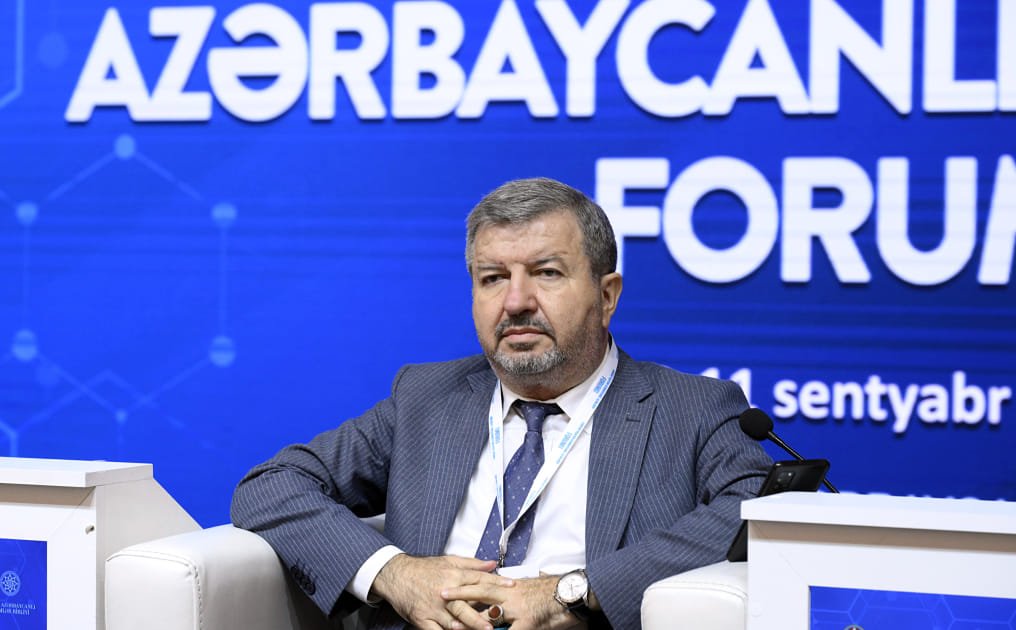Russia has lost its status as the sole power broker in the South Caucasus and is now striving to regain influence through a range of political and diplomatic tools, says Turkish political analyst Togrul Ismayil in an interview with Minval Politika.
On Baku-Hosted Israel–Syria Talks
Ismayil called the fact that Israel–Syria negotiations are taking place in Baku “exceptionally important,” noting that Azerbaijan is steadily emerging as a key diplomatic player thanks to its unique geopolitical position and balanced foreign policy.
He does not expect a quick breakthrough or a full peace deal, but rather an initial “testing of the waters” to establish communication channels and de-escalation mechanisms. Azerbaijan’s neutrality, good relations with both Israel and Muslim countries, and lack of historic baggage make it an ideal host for such sensitive talks.
On the Zangezur Corridor
Calling the Zangezur Corridor a “strategic necessity” for the entire region, Ismayil said its opening is only a matter of time. The corridor, linking mainland Azerbaijan to the Nakhchivan Autonomous Republic via Armenia, would be a vital link in the Middle Corridor from China to Europe, bypassing Russia and Iran.
He predicts a compromise that could involve special status for the route — potentially under international oversight or joint management. Azerbaijan and Turkey are the main drivers, while Armenia could benefit from breaking isolation. Russia, despite losing influence, will seek a role to prevent full Turkish dominance, and the U.S. may also engage, seeing billions in potential trade flows.
On U.S.–Russia Relations
Ismayil described current U.S.–Russia ties as at their lowest point in decades, marked by “pragmatic confrontation.” While Donald Trump began with an openness to improved ties, Russia’s unwillingness to compromise — especially on Ukraine — has shifted his approach toward sanctions and pressure, though without deep ideological hostility.
On the Ukraine Conflict
Trump’s compressed “50 days turned into 10–12 days” ultimatum to Moscow is seen as a tactical move to apply pressure rather than a realistic timeline. Ismayil believes a settlement will require phased negotiations and mutual concessions, which neither side is ready for — leaving the conflict likely frozen until the balance of power changes.
On Turkey’s Rising Influence
Turkey’s expanding clout in both the Middle East and South Caucasus stems from a long-term strategy leveraging its geographic position, military strength, defense industry, and cultural ties, particularly with Turkic states. Ismayil expects this trajectory to continue regardless of leadership changes, as it is rooted in national interests rather than individual politics.
On Russia’s Waning Role in the South Caucasus
While Moscow’s focus on Ukraine and Turkey’s growing role have eroded its dominance, Ismayil believes Russia will try to reassert itself via military presence, economic incentives, and participation in regional talks — though it will need to accommodate Turkey’s interests.
On Tensions Between Baku and Moscow
The downing of an Azerbaijani airliner, with evidence pointing to Russian responsibility, is a flashpoint in already strained ties. Ismayil says Moscow’s silence is driven by a desire to avoid political fallout, resolve the matter quietly, and preserve relations with Azerbaijan — a key partner in regional trade and transit.
He warns that this incident will test the resilience of Azerbaijan–Russia relations and may deepen the cooling unless Moscow finds a diplomatic resolution.


